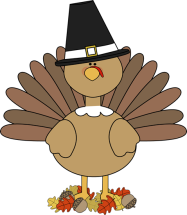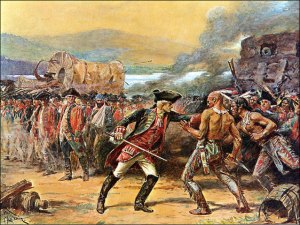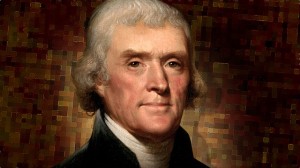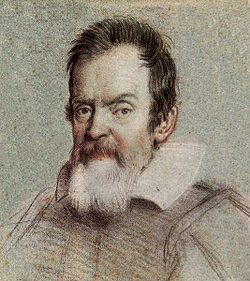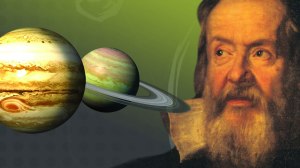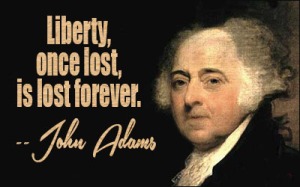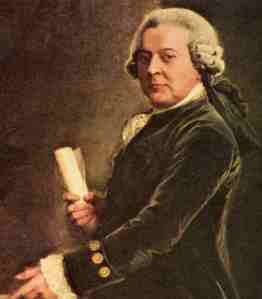
One of the most noticeable things that you see when you are entering the New York harbor is the enormous Statue of Liberty. It was given to us by the French as a symbol of friendship, however, there is great meaning to the statue. Over the years, Lady Liberty has been a symbolic icon to people all over the world.
To some people, her presence means freedom and a new beginning. During the American Revolution, America probably would not have been able to conquer the British and gain freedom without the help of the French.
The French helped a lot by supplying the U.S with plenty of money, ships, weapons and soldiers to fight against the British. Almost 100 years after the war, the French decided that they had a great deal in common with the US and wanted something to symbolize their close historic ties and their passion for freedom and liberty.
Because of the close bond between the two countries, the French decided that it would be a great idea to show the United States that they are close allies and exemplify the fact that they were also dedicated to the idea of human liberty. There was a great deal of work that was put into creating the statue. The French hired Frederic Auguste Bartholdi to sculpt the statue.
The statue of liberty is an amazing piece of art, and means lots of things to the Americans.
Category Archives: History
The History Of Thanksgiving
Thanksgiving is one of America’s most treasured holidays and traditions. The American Thanksgiving holiday began as a feast in the early days of the American colonies almost 400 years ago. In 1620, a boat filled with more than 100 people sailed across the Atlantic Ocean from England to settle in the New World. This religious group had begun to question the beliefs of the Church of England and they wanted to separate from it. Another reason was the king was rude and demanding.
The pilgrims settled in what is now the state of Massachusetts, and their first winter in the New World was difficult. They had arrived too late in the year to grow any crops, and without fresh food, half the colonist died from diseases which the contracted on the voyage from England. The following spring the Iroquois Indians befriended the pilgrims and taught them how to grow corn, something the colonist never had done before.
They showed them other crops to grow in the unfamiliar soil and how to hunt and fish. In the autumn of 1621, plentiful crops of corn, barley, beans and pumpkins were harvested. The colonists had much to be thankful for, so a feast was planned.
They invited the local Indian chief and 90 Indians. The Indians brought deer to roast with the turkeys and other wild game offered by the colonists. The colonists had learned how to cook cranberries and different kinds of corn and squash dishes from the Indians.
In following years, many of the original colonists celebrated the autumn harvest with a feast of thanks. After the United States became an independent country, Congress recommended one yearly day of thanksgiving for the whole nation to celebrate.
Thanksgiving is my favorite holiday and I hope you enjoy your next Thanksgiving.
The History Of Athens
Athens is the patron city of Greece. Athens is named after the Greek goddess Athena. She was the goddess of wisdom, war, and civilization.
The Acropolis
The Acropolis was built on a hill in the middle of the city of Athens. Surrounded by stone walls, it was originally built as a citadel and fortress where the people could retreat when the city was attacked. Later, many temples and buildings were built here to overlook the city. It was still used as a fortress for some time.
At the center of the Acropolis is the Parthenon. This building was dedicated to the goddess Athena and was also used to store gold. Other temples were in the acropolis such as the Temple of Athena, Nike and the Erchtheum.
On the slope of the acropolis were theatres where plays and festivals were celebrated. The largest was the Theatre of Dionysus, god of wine and patron of the theatre. There were competitions held here to see who had written the best play. Up to 25,000 people could attend, and the design was so good that all could see and hear the play.
The Age of Pericles
The city of Ancient Athens reached its peak during the leadership of Pericles from 461 to 429 BC, called the Age of Pericles. During this time, Pericles promoted democracy, the arts, and literature. He also built many of the cities great structures including rebuilding much of the Acropolis and building the Parthenon
This city is amazing because it has beautiful architecture and was the birth of democracy.
Plato’s Cave
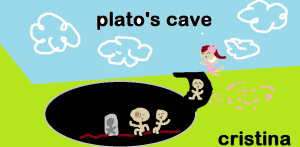

Plato is known today as one of the greatest philosophers of all time. He was born about 429 BC, close to the time when Pericles died, and he died in 347 BC, just after the birth of Alexander the Great. Plato was born in Athens, to a very rich and powerful family. Many of his relatives were involved with Athenian politics, though Plato himself was not.
When Plato was a young man, he went to listen to Socrates and learned a lot from Socrates about how to think, and what sort of questions to think about. When Socrates was killed in 399 BC, Plato was upset. He started writing down most of what we know about Socrates today.
After a while, though, Plato began to write down his own ideas about philosophy instead of just writing down Socrates’ ideas. One of his earlier works is the Republic, which describes what Plato thought would be a better form of government than the government of Athens. Plato thought that most people were pretty stupid and they should not be voting about what to do. Instead, the best people should be chosen to be the guardians of the rest.
Plato also thought a lot about the natural world and how it works. He thought that everything had a sort of ideal form, like the idea of a chair, and then an actual chair was a sort of poor imitation of the ideal chair that exists only in your mind.
One of the ways Plato tried to explain his ideas was with the famous metaphor of the cave. He said, suppose there is a cave, and inside the cave there are some men chained up to a wall, so that they can only see the back wall of the cave and nothing else. These men can’t see anything outside of the cave, or even see each other clearly, but they can see shadows of what is going on outside the cave. The prisoners came to think that the shadows were real, and represented life.
Suppose now that one of the men escaped, and got out of the cave and saw what real people looked like and real trees and grass. If he went back to the cave and told the other men what he had seen, would they believe him, or would they think he was crazy?
Plato says that we are like those men sitting in the cave – we think we understand the real world, but because we are trapped in our bodies we can see only the shadows on the wall.
Plato was a very intelligent man and definitely learned from one of the best.
Albert Einstein, a Great Scientist
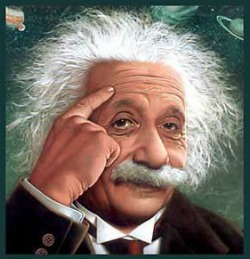
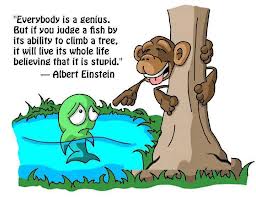
Albert Einstein was an intelligent man who was very spiritual and teachable. He came up with some of the most important discoveries and theories in all of science. Some people consider him to be one of the smartest inventors.
Albert Einstein was born in Ulm, Germany on March 14, 1879. He spent most of his childhood in Munich, Germany. His father had an electronics company and Albert learned a lot about science and electronics from his dad. He really liked math and wanted to pursue math and science in school. He didn’t finish school in Germany, but ended up his schooling in Switzerland. Einstein would later move back to Bern, Germany.
Albert immigrated to the United States in 1933. He was fleeing from the Nazis in Germany who didn’t like Jewish people. If he had stayed in Germany he would not have been able to hold a teaching position at the University as a Jewish person. At one point the Nazis had a bounty on his head. In 1940 Einstein became a US citizen.
Albert Einstein had many discoveries as a scientist, but is most known for his Theory of Relativity. This theory changed much in the way scientists look at the world and set the foundation for many modern inventions, including the nuclear bomb and nuclear energy. One equation from the theory is E=mc2.
Albert Einstein was a scientist in the early 1900s. In addition to being a great scientist Albert was very spiritual and had a strong belief in God. He was intelligent and was always ready to learn something new.
The French and Indian War
The French Indian War was one of a series of wars between the British and French starting as early as the 1600s. The French Indian War took place from 1754 to 1763.
In the 1750s, France and Britain were fighting in Europe. The war was now spreading to North America. British Colonists wanted to take over French land in North America. The British wanted to take over the fur trade in the French held territory.
British soldiers fought against French soldiers and Native Americans. Native Americans joined in the battle against the British because they were afraid the British would take over their land.
The war ended in 1759 when British Major General James Wolfe captured Quebec.
The British got most of the French land in North America. Also as a result of the war, the British began taxing the colonists to pay for the war.
Thomas Jefferson
Thomas Jefferson grew up in the English Colony of Virginia. His parents, Peter and Jane, were wealthy landowners. Thomas enjoyed reading, exploring nature, and playing the violin. When he was just 11 years old his father died. He inherited his father’s large estate, named Monticello, and began to manage it at the age of 21.
Thomas attended the college of William and Mary in Virginia. There he met his mentor, a law professor by the name of George Wythe. He became interested in law and would later decide to become a lawyer.
Before he became President, Thomas Jefferson had a number of jobs: he was a lawyer who studied and practiced law, a farmer and managed his vast estate and a politician who served as a member of Virginia’s legislature.
By the 1770s, the American colonies, including Jefferson’s Virginia, began to feel they were being unfairly treated by their British rulers. Thomas Jefferson became a leader in the fight for independence and represented Virginia at the Continental Congress.
During the Second Continental Congress, Jefferson was tasked, together with John Adams and Benjamin Franklin, to write a Declaration of Independence. This document was to state that the colonies considered themselves free from British rule and were willing to fight for that freedom. Jefferson was the primary author of the document and wrote the first draft. After incorporating a few changes from the other members of the committee, they presented it to the Congress. This document is one of the most treasured documents in the history of the United States.
Jefferson became the third President of the United States on March 4, 1801. One of the first things he did was try to reduce the federal budget, moving power back into the hands of the states. He also lowered taxes, which made him popular to many people. One of his major accomplishments was the Louisiana Purchase whereby The US purchased from France all the land West of the Mississippi.
Jefferson became sick in 1825. His health grew worse, and he finally passed away on July 4, 1826. It is an amazing fact that he died on the same day as his fellow founding father John Adams. Even more amazing is that they both died on the 50th anniversary of the Declaration of Independence.
He was the 3rd president and without him we would not have the freedom we have today.
George Washington
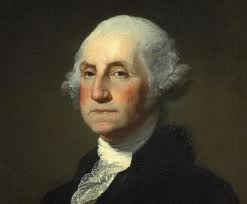
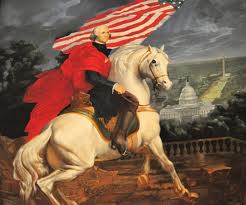
George Washington grew up in Colonial Virginia. His father, a landowner and planter, died when George was just 11 years old. Fortunately, George had an older brother named Lawrence who took good care of him. Lawrence helped to raise George and taught him how to be a gentleman. Lawrence made sure that he was educated in the basic subjects like reading and math.
When George turned 16 he went to work as a surveyor, where he took measurements of new lands, mapping them out in detail. A few years later George became a leader with the Virginia militia and became involved in the start of the French and Indian War.
After the French and Indian War George settled down and married the widow Martha Dandridge. He took over the estate of Mount Vernon after his brother Lawrence died and raised Martha’s two children from her former marriage. George and Martha never had kids of their own. George became a large landowner and was elected to the Virginian legislature.
Soon George and his fellow landowners became upset with unfair treatment by their British rulers. They began to argue and fight for their rights. When the British refused they decided to go to war.
George was one of Virginia’s delegates at the First and Second Continental Congress. This was a group of representatives from each colony who decided to fight the British together. In May of 1775 they appointed Washington as general of the Continental Army.
General Washington did not have an easy task. He had a ragtag army of colonial farmers to fight trained British soldiers. However, he managed to hold the army together even during tough times and losing battles. Over the course of six years George led the army to victory over the British. His victories include the famous crossing of the Delaware River on Christmas and the final victory at Yorktown, Virginia. The British Army surrendered in Yorktown on October 17, 1781.
Just a few years after leaving the office of president, Washington caught a bad cold. He was soon very sick with a throat infection and died on December 14, 1799.
George Washington should not be forgotten because he is considered one of our founding fathers. He will be long remembered as one of the best presidents.
Galileo, A Great Scientist
Galileo was born in Pisa, Italy where he grew up during the Renaissance. His father was a music teacher and a famous musician.
Galileo was an accomplished musician and an excellent student. At first he wanted to become a doctor, so he went to the University of Pisa to study medicine in 1581. While at university, Galileo became interested in physics and mathematics. In 1585, Galileo left the university and landed a job as a math teacher.
He began to experiment with pendulums, levers, balls, and other objects. He tried to describe how they moved using mathematic equations. He even invented an advanced measuring device called the hydrostatic balance.
In 1609, Galileo heard of an invention from Holland called the telescope that could make far away items appear much closer. He decided to build his own telescope. He made great improvements to the telescope and began to use it to view the planets. Soon Galileo’s version of the telescope was used throughout Europe. Galileo made many discoveries using his telescope including the four large moons around Jupiter and the phases of the planet Venus. He also discovered sunspots and learned that the Moon was not smooth.
As Galileo studied the planets and the Sun, he became convinced that the Earth and the other planets orbited the Sun. In 1632, he wrote a book called the Dialogue Concerning the Two Chief World Systems. In this book he described why he thought the Earth orbited the Sun. However, the misguided Catholic Church considered Galileo’s ideas threatening to their beliefs. At first they sentenced him to life in prison, but later allowed him to live at his home in Tuscany under house arrest.
John Adams
John grew up in the English colony of Massachusetts Bay. His father was an influential farmer and craftsman. John was an intelligent boy and his father put an emphasis on education. He went to Harvard for college where his father expected him to study to become a minister. John had different ideas, however, and decided to study law. He graduated from Harvard in 1755 and began practicing law in Boston soon afterward.
As Adams practiced law in Boston, he began to have strong feelings about the British rule. He felt that the colonies were not being treated fairly and should become independent from Britain. He became a member of the Massachusetts legislature and then served as their delegate at the Second Continental Congress. While serving on the Congress he was a strong advocate of independence for America. He even worked on the Declaration of Independence with Thomas Jefferson.
During his presidency, Adams’ main accomplishment was keeping the United States out of war with France. France and Great Britain were at war and both wanted help from the US. The American public was divided. Some wanted to support France because France helped the US during the American Revolution. Others wanted to help Great Britain. Although it hurt his popularity at the time, Adams opted for peace and kept the country out of the war.
Adams lived to the ripe old age of 90 when he fell ill and died on July 4, 1826. Adams died on the same day as Thomas Jefferson. This day was also the 50th anniversary of the the Declaration of Independence!
John Adams was an amazing president and was very smart about America’s decisions. He is a big part in American history.

